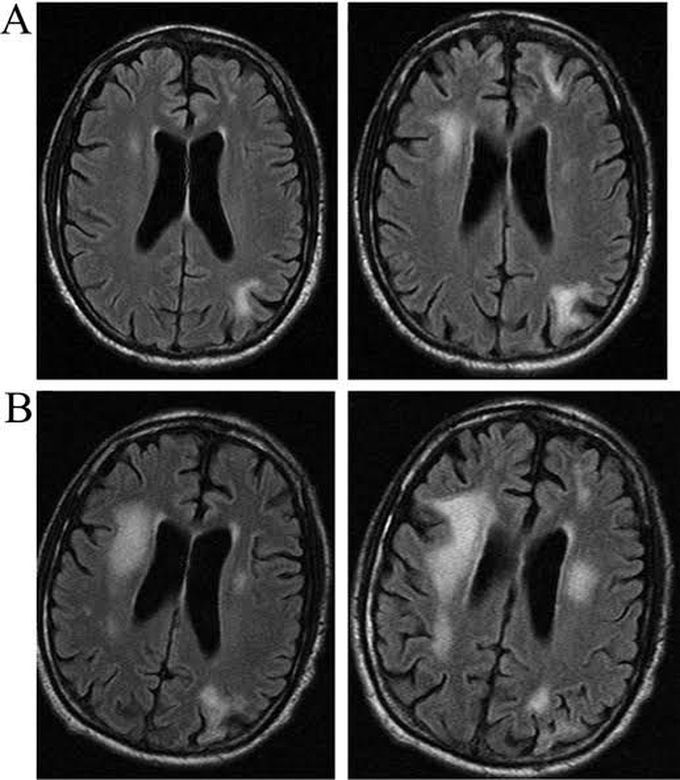


Progressive Multifocal leukoencephalopathy
Progressive multifocal leukoencephalopathy (PML) is a disease of the white matter of the brain, caused by a virus infection (polyomavirus JC) that targets cells that make myelin—the material that insulates nerve cells (neurons). Polyomavirus JC (often called JC virus) is carried by a majority of people and is harmless except among those with lowered immune defenses. PML is rare and occurs in people undergoing chronic corticosteroid or immunosuppressive therapy for organ transplant, or individuals with cancer (such as Hodgkin's disease or lymphoma). Individuals with autoimmune conditions such as multiple sclerosis, rheumatoid arthritis, and systemic lupus erythematosus—some of whom are treated with biological therapies that allow JC virus reactivation—are at risk for PML as well. PML is most common among individuals with HIV-1 infection. The most prominent symptoms are: Clumsiness Progressive weakness Visual, speech, and sometimes personality changes A diagnosis of PML can be made following brain biopsy or by combining observations of a progressive course of the disease, consistent white matter lesions visible on a magnetic resonance imaging (MRI) scan, and the detection of the JC virus in spinal fluid.
Living with Lupus is often a battle not just against the illness itself, but also against the emotional weight of uncertainty, fatigue, and the toll of long-term medications. For one courageous woman, that battle began in 2013. Diagnosed after Lupus had already affected her joints and internal organs, she was quickly placed on medication that initially helped. But as time went on, her health declined again this time with more frequent flare-ups and increasingly difficult side effects. Like many others with chronic illness, she faced the crushing weight of hopelessness. Each day became harder than the last, and conventional treatments no longer offered the comfort they once did. But in March 2020, at her lowest point, she made a decision that changed everything.Out of desperation and with a healthy dose of skepticism she turned to NaturePath Herbal Clinic, hoping their natural Lupus treatment might offer at least some relief. What happened next went far beyond her expectations.After completing a six-month herbal program, her flare-ups stopped entirely. Her energy returned. The chronic pain that had defined her daily life began to fade. For the first time in years, she felt like herself again. Not just alive but truly living.Her story is not just one of healing; it’s one of resilience, open-mindedness, and the courage to try something new when all else fails. By sharing her journey, she hopes to offer something priceless to others living with Lupus: hope.This treatment has been a true breakthrough for her. If you’re searching for a safe, natural, and effective alternative, I genuinely recommend giving this a chance.”www.naturepathherbalclinic.com or email them at info@naturepathherbalclinic.com


